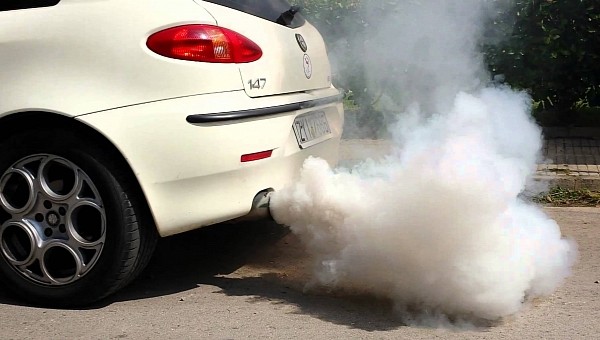If you thought that switching to all-electric cars was not such a good idea, then this new U.S. study might make you think twice about it. Its conclusion about the impact of burning fossil fuels on our mental health reveals a couple of worrying aspects.
A very recent study done by a team of authors from Atlanta’s Emory University, Boston’s Harvard School of Public Health, Denmark’s University of Copenhagen, Baltimore’s Johns Hopkins University School of Medicine, and others brings forward a discovery that can change how we perceive the internal combustion engine and the burning of fossil fuels.
The research was performed in the U.S. and it studied the impact of fine particulate matter commonly known or depicted as PM 2.5. According to New York State’s Department of Health, these tiny droplets that are found in the air people breathe almost everywhere in America can easily reach the lungs thanks to their incredibly small size. When we’re exposed to them, coughing, irritation, or shortness of breath can be noticed.
The same Department tells us that the primary sources of PM 2.5 are the vehicles we see roaming our cities daily. Also, they indicate that other activities such as burning wood, forest fires, smoking, or cooking can increase the number of fine particles in the air.
However, things can get a lot worse in the long run. If our air is not clean, then our brains will most likely suffer some harsh consequences.
This new research aimed to find if and how exposure to fine particulate matter impacts our brain’s health. After a nationwide population-based study that spanned from 2000 to 2017 was conducted, the researchers concluded that living in environments where PM 2.5 is present increases the chances of Alzheimer’s Disease by 9% and dementia by 6-7%. They discovered this after overlapping maps of data regarding pollution with data about neurological affections.
Moreover, the authors discovered that some constituents of the PM 2.5 can be more dangerous for humans. These are black carbon, organic matter, nitrate, sulfate, and dust. They are being linked to the aforementioned diseases as catalysts.
The study also says that prolonged exposure to PM 2.5 is associated with a higher risk of developing Alzheimer’s Disease or dementia and the fine particulate matter produced by the vehicles that burn fossil fuels "might drive these observed associations." They underline that long-term exposure to PM 2.5 mass coming “from traffic and fossil fuel combustion sources is significantly associated with elevated dementia or Alzheimer’s Disease incidence.”
Lastly, keep in mind that Alzheimer’s Disease is a form of dementia. While the latter encompasses all the problems one can have with declining mental ability, Alzheimer’s affects the part of the brain that’s responsible for learning. Currently, there is no definitive treatment for either of them.
The study is available for download down below.
The research was performed in the U.S. and it studied the impact of fine particulate matter commonly known or depicted as PM 2.5. According to New York State’s Department of Health, these tiny droplets that are found in the air people breathe almost everywhere in America can easily reach the lungs thanks to their incredibly small size. When we’re exposed to them, coughing, irritation, or shortness of breath can be noticed.
The same Department tells us that the primary sources of PM 2.5 are the vehicles we see roaming our cities daily. Also, they indicate that other activities such as burning wood, forest fires, smoking, or cooking can increase the number of fine particles in the air.
However, things can get a lot worse in the long run. If our air is not clean, then our brains will most likely suffer some harsh consequences.
This new research aimed to find if and how exposure to fine particulate matter impacts our brain’s health. After a nationwide population-based study that spanned from 2000 to 2017 was conducted, the researchers concluded that living in environments where PM 2.5 is present increases the chances of Alzheimer’s Disease by 9% and dementia by 6-7%. They discovered this after overlapping maps of data regarding pollution with data about neurological affections.
Moreover, the authors discovered that some constituents of the PM 2.5 can be more dangerous for humans. These are black carbon, organic matter, nitrate, sulfate, and dust. They are being linked to the aforementioned diseases as catalysts.
The study also says that prolonged exposure to PM 2.5 is associated with a higher risk of developing Alzheimer’s Disease or dementia and the fine particulate matter produced by the vehicles that burn fossil fuels "might drive these observed associations." They underline that long-term exposure to PM 2.5 mass coming “from traffic and fossil fuel combustion sources is significantly associated with elevated dementia or Alzheimer’s Disease incidence.”
Lastly, keep in mind that Alzheimer’s Disease is a form of dementia. While the latter encompasses all the problems one can have with declining mental ability, Alzheimer’s affects the part of the brain that’s responsible for learning. Currently, there is no definitive treatment for either of them.
The study is available for download down below.











